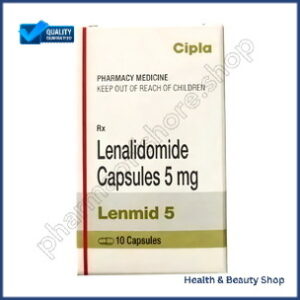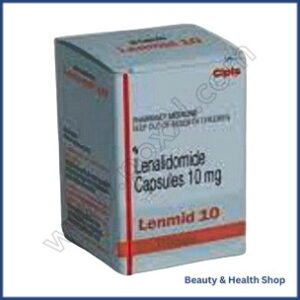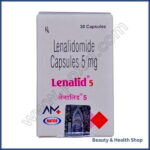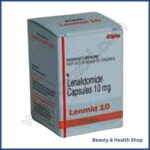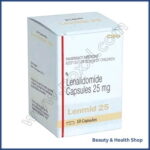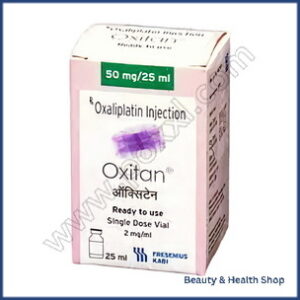ADDICTION
ALCOHOL DEPENDENCE
QUIT SMOKING
ALLERGY
ANTI FUNGAL
FUNGAL INFECTION
FUNGAL NAIL INFECTIONS
ANTI-REJECTION DRUGS
ANTI WORM
ANTIBIOTIC
BACTERIAL INFECTIONS
ARTHRITIS
GOUT
OSTEOARTHRITIS
RHEUMATOID ARTHRITIS
BLOOD
LOW PLATELET COUNT
THROMBOPHLEBITIS
VARICOSE VEINS
COLON
ANAL FISSURE
PILES
ULCERATIVE COLITIS
DIABETES CARE
DIABETES INSIPIDUS
DIABETES TYPE
DIABETIC FOOT ULCERS
GLUCOSE MONITOR
EYES/EAR CARE
DRY EYES
EYE CARE
EYE EXAMINATION
EYE INFECTION
EYE LASHES
EYE PAIN
GLAUCOMA
OCULAR HYPERTENSION
UVEITIS
FEVER CARE
MALARIA
RHEUMATIC FEVER
TYPHOID FEVER
GASTROINTESTINAL
ACIDITY
CONSTIPATION
CROHN'S DISEASE
DIARRHOEA
GALLBLADDER STONES
INTESTINAL ULCERS
IRRITABLE BOWEL SYNDROME
MOTION SICKNESS
NAUSEA
Gemita Injection (Gemcitabine)
Gemita 200 mg Injection (Gemcitabine)
| Amount | Price | Price / Unit |
Qty | ||
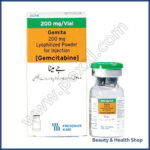
|
1 Injection | $40.00 | $40.00 |
||

|
2 Injections | $75.00 | $37.50 |
||

|
3 Injections | $106.00 | $35.33 |
Gemita 1400 mg Injection (Gemcitabine)
| Amount | Price | Price / Unit |
Qty | ||

|
1 Injection | $181.00 | $181.00 |
||

|
2 Injections | $350.00 | $175.00 |
||

|
3 Injections | $500.00 | $166.67 |
| Active Ingredient (Generic Name): | Gemcitabine |
|---|---|
| Indication: | Ovarian cancer, Head and neck cancer, Cervical cancer |
| Manufacturer | Fresenius Kabi India Pvt.Ltd. |
| Packaging: | 1 Injection in one vial |
From: $181.00
When considering Gemita Injection (Gemcitabine) for cancer treatment, you may find that its mechanism of action offers promise in combating various types of cancer. Intriguingly, the way in which it disrupts cancer cell growth holds potential benefits worth exploring further.
Why is this medication prescribed?
Gemita Injection, also known as Gemcitabine, is prescribed to treat various types of cancer by slowing or stopping the growth of cancer cells. It is commonly used for cancers such as pancreatic, lung, breast, ovarian, and bladder cancer. This medication works by interfering with the process of cell division, ultimately leading to the death of cancer cells. Gemcitabine is a type of chemotherapy drug that is administered intravenously, allowing it to enter the bloodstream rapidly and target cancer cells throughout the body.
For pancreatic cancer, Gemita Injection is often used in combination with other chemotherapy medications to improve effectiveness. In lung cancer, it may be prescribed as a single agent or in combination with other treatments. Your healthcare provider will determine the best treatment plan for your specific type and stage of cancer. It is important to follow their instructions carefully and attend all scheduled appointments to monitor your progress and manage any potential side effects.
How should this medicine be used?
When using Gemita Injection, the dosage and frequency of administration will be determined by your healthcare provider based on your specific type and stage of cancer. Gemita Injection is typically given intravenously over a specific period, with the exact schedule depending on your individual treatment plan. It is important to follow your healthcare provider’s instructions carefully.
Usually, Gemita Injection is administered once a week for several weeks, followed by a week of rest. This cycle may be repeated as recommended by your healthcare team. The injection is given in a medical setting by a healthcare professional who is experienced in chemotherapy administration.
It is essential to attend all scheduled appointments and inform your healthcare provider of any side effects or concerns you may have during treatment. Do not adjust the dosage or frequency of Gemita Injection without consulting your healthcare provider first. Proper use of this medication is essential for its effectiveness in treating your specific type of cancer.
Other uses for this medicine
If prescribed by your healthcare provider, Gemita Injection may also be used in the treatment of certain types of lung cancer. Gemcitabine, the active ingredient in Gemita Injection, has shown effectiveness in combating non-small cell lung cancer and small cell lung cancer. This medication works by interfering with the growth and spread of cancer cells in the body.
In addition to lung cancer, Gemita Injection is sometimes used in combination with other medications to treat pancreatic cancer. Pancreatic cancer is a challenging disease with limited treatment options, and Gemcitabine has been a valuable addition to the available treatment regimens.
Furthermore, Gemita Injection is being studied for its potential benefits in treating other types of cancers, such as bladder cancer, breast cancer, and ovarian cancer. Research is ongoing to explore the effectiveness of Gemcitabine in these cancer types, expanding its potential utility in the field of oncology. Always follow your healthcare provider’s recommendations regarding the use of Gemita Injection for your specific condition.
What special precautions should I follow?
When using Gemita Injection (Gemcitabine), be sure to check for any potential drug interactions. It is crucial to consult with your healthcare provider or pharmacist to guarantee the safe use of this medication. Following these precautions can help prevent any unwanted complications or side effects.
Check for Drug Interactions
Prioritize checking for potential drug interactions before starting Gemita Injection (Gemcitabine) to guarantee your safety and treatment effectiveness. When evaluating drug interactions, consider the following:
- Consult Your Healthcare Provider: Always consult your healthcare provider or pharmacist before starting any new medications while on Gemita Injection to avoid potential interactions.
- Inform About All Medications: Make sure to inform your healthcare provider about all the medications, supplements, and herbal products you are currently taking to evaluate any possible interactions.
- Monitor Side Effects: Regularly monitor for any unusual side effects or changes in the effectiveness of either Gemita Injection or other medications, and promptly report them to your healthcare provider.
- Follow Recommendations: Follow your healthcare provider’s recommendations regarding medication adjustments or potential alternative treatments to manage any identified drug interactions effectively.
What special dietary instructions should I follow?
To optimize the effectiveness of Gemita Injection (Gemcitabine), consider incorporating more fruits and vegetables into your diet. Eating a variety of colorful fruits and vegetables can provide crucial vitamins, minerals, and antioxidants that support your overall health and well-being during cancer treatment. Aim to include a diverse range of produce such as leafy greens, berries, citrus fruits, and cruciferous vegetables like broccoli and cauliflower. These foods can help strengthen your immune system and provide essential nutrients that may assist in combating potential side effects of Gemita Injection.
Additionally, ensuring to stay hydrated by drinking plenty of water throughout the day is crucial. Adequate hydration can help flush out toxins from your body and support the proper functioning of your organs. Limiting processed foods, sugary beverages, and high-fat meals is also recommended to maintain a balanced and nutritious diet while undergoing treatment. Consulting with a healthcare provider or a registered dietitian can offer personalized dietary recommendations tailored to your specific needs and treatment plan.
What should I do if I forget a dose?
If a dose of Gemita Injection (Gemcitabine) is missed, promptly contact your healthcare provider for guidance on the next steps to take. Your healthcare provider will be able to provide specific instructions based on your individual treatment plan. It is important not to try to make up for the missed dose by taking extra medication without consulting your healthcare provider first. They may recommend adjusting your dosing schedule or taking the missed dose at a later time.
When contacting your healthcare provider, be prepared to provide information about when the missed dose occurred and any other relevant details about your treatment. Your healthcare provider may also take into account factors such as the timing of your next dose and any potential interactions with other medications you are taking. Following their guidance will help make sure that you stay on track with your treatment plan and minimize any potential impact of the missed dose on your overall treatment effectiveness.
What side effects can this medication cause?
Gemita Injection, containing Gemcitabine, may cause various side effects. Some of these side effects can be serious, so it is essential to notify your doctor of any persistent symptoms. If you experience any worrisome symptoms, such as severe fatigue or unexplained bleeding, make sure to contact your healthcare provider promptly.
Notify Doctor of Persistent Symptoms
Persistent symptoms caused by Gemita Injection, such as nausea and fatigue, should prompt you to promptly inform your doctor. Here are some reasons why it’s important to keep your healthcare provider informed:
- Early Intervention: Notifying your doctor early can help in managing symptoms effectively.
- Monitoring: Your doctor can closely monitor your condition and make necessary adjustments to your treatment plan.
- Preventing Complications: Timely communication can help prevent any potential complications that may arise.
- Quality of Life: By informing your doctor, you can work together to maintain your quality of life during treatment.
Some side effects can be serious. If you experience any of the following symptoms, call your doctor immediately:
Serious side effects of Gemita Injection may include severe allergic reactions or significant changes in blood cell counts. If you experience any of the following symptoms, contact your doctor promptly:
- Difficulty Breathing: Wheezing, shortness of breath, or tightness in the chest can indicate a severe allergic reaction.
- Unexplained Bruising or Bleeding: Such as frequent nosebleeds, bleeding gums, or easy bruising, may signal a decrease in blood cell counts.
- Fever or Chills: Especially when accompanied by body aches or fatigue, could indicate an infection or an adverse reaction to the medication.
- Yellowing of the Skin or Eyes: Jaundice may suggest liver problems, requiring immediate medical attention.
What should I know about the storage and disposal of this medication?
When storing Gemita Injection (Gemcitabine), it is essential to keep it in a cool, dry place away from direct sunlight and moisture to maintain its effectiveness. It is important to store this medication at room temperature between 68-77 degrees Fahrenheit (20-25 degrees Celsius). Avoid freezing Gemita Injection as it may compromise its integrity. Always keep it in its original packaging until ready for use to shield it from light and air exposure. Additionally, make sure that the medication is out of reach of children and pets to prevent accidental ingestion.
When it comes to disposal, consult with your healthcare provider or pharmacist on the proper way to discard any unused Gemita Injection. Do not dispose of it in household trash or flush it down the toilet unless instructed to do so. They can provide guidance on the safe and environmentally friendly disposal methods available in your area. Proper storage and disposal practices help maintain the efficacy of Gemita Injection while also ensuring the safety of those around you.
In case of an emergency/overdose
In case of an emergency or overdose involving Gemita Injection (Gemcitabine), promptly seek medical assistance. If you suspect an overdose or experience severe side effects such as difficulty breathing, chest pain, or loss of consciousness after receiving Gemita Injection, do not hesitate to call emergency services or go to the nearest emergency room immediately. It is important to provide healthcare providers with detailed information about the medication you have taken, including the dosage and the timing of the administration.
When seeking medical help, bring the medication packaging or any remaining vials of Gemita Injection with you to assist healthcare professionals in determining the appropriate treatment. Do not attempt to treat the overdose or emergency situation on your own without medical supervision. Healthcare providers have the expertise and resources to manage overdoses effectively and provide the necessary care to address any potential complications that may arise. Remember, prompt action in emergencies involving medication overdoses can have a significant impact on the outcome and ensure timely intervention for your well-being.
What other information should I know?
For a comprehensive understanding of Gemita Injection (Gemcitabine), it is vital to be aware of additional information that can impact your treatment and health. It is important to inform your healthcare provider about any other medications, supplements, or herbal products you are currently taking before starting Gemita Injection. Certain medications may interact with Gemcitabine, affecting its effectiveness or increasing the risk of side effects. Your doctor will also need to know about any medical conditions you have, especially if you have kidney or liver problems, as these can influence the dosage and frequency of Gemita Injection.
During treatment with Gemita Injection, it is essential to attend all scheduled appointments with your healthcare provider. Regular check-ups and blood tests will help monitor your response to the medication and detect any potential complications early. It is recommended to stay well-hydrated before and after each dose of Gemita Injection to help protect your kidneys. If you experience any new or worsening symptoms while on Gemcitabine, such as fever, shortness of breath, or unusual bleeding, contact your healthcare provider immediately.
Brand names
To identify Gemita Injection (Gemcitabine) under different commercial labels, you can refer to its various brand names. Gemcitabine, the active ingredient in Gemita Injection, is marketed under different brand names by various pharmaceutical companies. Below is a table displaying some common brand names for Gemcitabine:
| Brand Name | Company | Country |
|---|---|---|
| Gemzar | Eli Lilly | United States |
| Gemcitabine Kabi | Fresenius Kabi | Germany |
| Gemtro | Teva Pharmaceuticals | Israel |
Each of these brand names refers to the same medication, Gemcitabine, which is used in the treatment of various types of cancer. The choice of brand name may vary depending on the manufacturer and the region where the medication is being sold. It is crucial to make sure that you are receiving the correct medication, regardless of the brand name, by consulting with your healthcare provider or pharmacist.
Purchase Locations and Availability
When looking to obtain Gemita Injection (Gemcitabine), you may wonder about its purchase locations and availability. Gemita Injection is typically available at pharmacies, hospitals, and medical facilities. It is important to note that Gemita Injection, being a prescription medication, requires a doctor’s prescription for purchase. You can inquire about its availability at your local pharmacy or hospital pharmacy department. Additionally, some specialized cancer treatment centers or clinics may also stock Gemita Injection for patients undergoing chemotherapy.
Availability of Gemita Injection may vary depending on your location and the specific medical facilities nearby. It is advisable to contact pharmacies or medical institutions in advance to check if they have Gemita Injection in stock. In cases where Gemita Injection is not readily available, healthcare providers or pharmacists may be able to assist in ordering it or suggesting alternative options. Remember to follow your healthcare provider’s guidance regarding the purchase and administration of Gemita Injection for your treatment needs.
To summarise
In conclusion, it is important to consider the availability and procurement process of Gemita Injection (Gemcitabine) for your treatment needs. Gemita Injection, containing the active ingredient Gemcitabine, is a essential chemotherapy medication used to treat various types of cancer. When contemplating this treatment option, it is imperative to make sure that Gemita Injection is accessible at your healthcare facility or through your healthcare provider.
Gemita Injection may be available at hospitals, cancer treatment centers, or specialized pharmacies. It is typically administered intravenously by healthcare professionals trained in chemotherapy administration. The procurement process involves obtaining the medication through a prescription from your healthcare provider and having it administered in a clinical setting under medical supervision.
Before proceeding with Gemita Injection treatment, discuss the availability, procurement process, potential side effects, and treatment plan with your healthcare team to ensure the best possible outcome for your specific medical condition. Always follow your healthcare provider’s instructions and guidelines regarding the use of Gemita Injection for your treatment.



